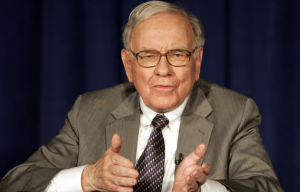Let me tell you about the very rich. They are different from you and me,” wrote F Scott Fitzgerald in 1925. “They think, deep in their hearts, that they are better than we are because we had to discover the compensations and refuges of life for ourselves. Even when they enter deep into our world or sink below us, they still think that they are better than we are. They are different.” The delusions of entitlement – that the rich deserve their wealth, privilege and the right to transgress social mores as they choose – are ever-present. In their eyes, wealth can’t just be a by-product of luck, can it? It must, one way or another, be deserved.
Among the great deformations of the four neoliberal decades through which we have lived are not just the policy catastrophes – monetarism, financial deregulation, austerity, Brexit, the Truss budget – but also the way that wealth generation and entrepreneurship, so crucial to the capitalist economy, have been ideologically framed. Instead of being recognised as a profoundly social process – in which great universities, the financial ecosystem and the runway provided by large and sophisticated markets support entrepreneurship – enterprise, and the wealth it produces, has been characterised as wholly attributable to individual derring-do in which luck plays little part. Hence the obsession with shrinking the state to reduce “burdensome” tax.
Individual agency is part of the story but, as Warren Buffett acknowledges, so does the “ovarian lottery” – being born in the US where its system favours the skills he possesses. One of the richest men in the world believes in capital gains and inheritance taxes – and paying them. Riches are a privilege: taxing them to contribute a fair share to society’s wider health – from which the rich benefit too – is the obligation that comes with being privileged.
But decades of being congratulated and indulged for the relentless pursuit of their own self-interest has turned the heads of too many of our successful rich. They really believe that they are different: that they owe little to the society from which they have sprung and in which they trade, that taxes are for little people. We are lucky to have them, and, if anything, owe them a favour. There is a long list of challenges confronting the new Labour government but one of the most overlooked is the need to start challenging this narrative.
Too many have bought into the lazy Trussite syllogism that low taxes for the rich means more enterprise and growth
The initial skirmishes foretell what lies ahead. A number of cabinet members told me that, in the months before the election, the fiercest and most consistent private lobbying of shadow ministers was to reverse Labour’s commitment to suspending VAT relief on private schools. Education should not be taxed as a matter of principle, they were told. State schools would suffer a vast influx of former private school kids putting intolerable pressure on the state system; it was a tax on aspiration; it represented social engineering and class envy. The proponents were oblivious to the notion that Britain’s private school system is itself a gigantic exercise in social engineering – sophisticated queue-jumping on a mass scale – that offers additional privilege to the already privileged. To sustain this advantage when the state system was in dire need was outrageous. Indeed, advocacy for private schools is itself class war. A largely state-educated cabinet so far has held the line. The relief will go.
Similarly, we are warned of an exodus of the non-domiciled rich as their tax privileges are removed. So far, Labour is holding the line – the cash is too desperately needed. But, while the attacks mount it needs the strongest possible story about why it is reasonable that the rich should pay their proper dues.
This has to have a moral dimension. Keir Starmer has made much of the duty that elected MPs and officials have to serve – but service and duty are not confined to those in the public realm. If Britain is to lift and sustain its growth rate decisively above the grim forecasts of little more than 1% next year and afterwards, the country will have to start looking and feeling more like a development state in which everyone puts their shoulder to the collective wheel – the rich included. We are all “fellows” in this common endeavour. President John F Kennedy’s inaugural address asked his citizens not to think of what their country could do for them, more what they could do for their country. Britain needs that spirit now.
There are encouraging straws in the wind. The Confederation of British Industry, our leading business lobby organisation, nearly driven to extinction by ethical lapses, believes that its path to recovery has been greatly helped by the advice of Principia Advisory – a consultancy that conducts ethics audits informed by the moral philosophers Jeremy Bentham, Immanuel Kant and Aristotle. Entrepreneur Julian Richer’s Good Business Charter is attracting growing adherents. At the launch of the National Wealth Fund last week, the chancellor, Rachel Reeves, was accompanied by business leaders who believe that delivering a great purpose should be at the heart of their business.
Research reveals that most fast-growing tech businesses are typically driven by such commitments to a great purpose. One new secretary of state told me that a phone call to business leaders who don’t recognise trade unions brought immediate change. The appointment of James Timpson, standing down as CEO of the eponymous shoe repair and key-cutting business to take the job of prisons minister, was inspired: one in 10 Timpson employees are ex-offenders, a tribute to the family firm’s longstanding belief that its societal obligation is to play its part in prisoner rehabilitation.
The Guardian

